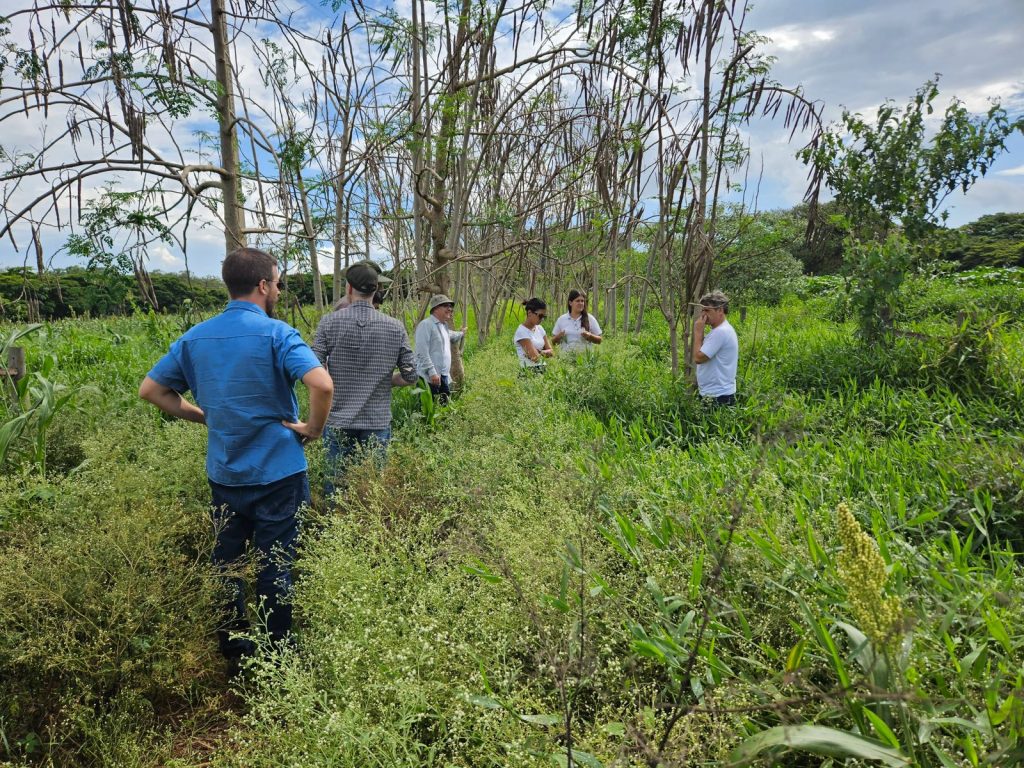Through a partnership with Fundo Vale, researchers from Embrapa Florestas are going into the field for the first time to visit an agroforestry site implemented as part of Vale’s 2030 Forest Goal. This initiative involves Fundo Vale, Palladium and Provalia – companies that are supporting the management of the Goal’s program and businesses.

A project called “Agroforestry Systems for Climate and Hunger Mitigation,” supported by Fundo Vale in partnership with Embrapa Florestas, the Brazilian government’s forestry research agency, has left the drawing board and is now working in the field. Its aim is to help disseminate and expand the adoption of model agroforestry systems, thereby promoting more resilient and sustainable agriculture in the face of climate change. The first visit was made in October 2023, to Caaporã Agrossilvipastoril’s Fazenda da Toca agroforestry site in São Carlos, São Paulo State, implemented as part of Vale’s 2030 Forest Goal.
Bia Marchiori, an agronomist at Fundo Vale, accompanied Embrapa Florestas researchers Marcelo Francia Arco-Verde, Silvio Brienza Júnior and Emiliano Santarosa. They learned about all the stages of the milk production system run by Caaporã – a pioneer in low-carbon beef and dairy farming in Brazil, using integrated silvopastoral systems.
“Next, we will have the analysis phase and possible suggestions for optimizing the production system. This work, scheduled for March 2024, will involve the technical team from Caaporã, Embrapa Florestas and Fundo Vale. Issues related to financial viability will be assessed, as well as observations of the social and environmental impact,” explains Embrapa’s Marcelo Francia Arco-Verde.
Thus, after understanding this agroforestry system model, the project will enter the stage of training technicians and family farmers, using a methodology developed in a participatory way in each region. The ultimate goal is to build capacities, increase income and improve the social conditions and quality of life of producers, while also helping combat hunger and contributing to climate and socioeconomic issues.

